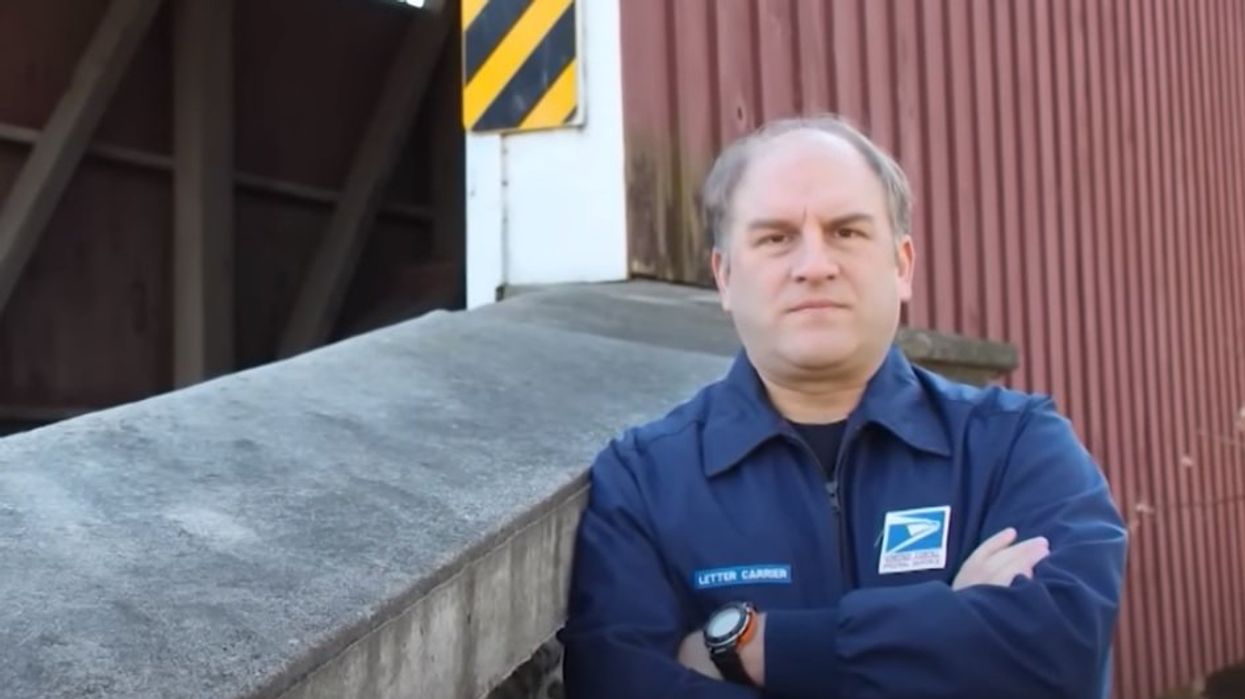
Screenshot of CBN News YouTube video (Gerald Groff, former USPS mail carrier)

The U.S. Supreme Court issued yet another ruling that bolsters religious liberty, resolving a civil rights lawsuit filed by a former postal worker who was disciplined repeatedly because he did not want to work on Sundays.
The court ruled 9-0 that businesses that refuse to accommodate an employee's religious practices must demonstrate that such accommodations would present a "substantial" burden on costs or operations. "'Undue hardship' is shown when a burden is substantial in the overall context of an employer’s business," Justice Samuel Alito wrote in the decision. "Those costs would have to rise to the level of hardship, and adding the modifier 'undue' means that the requisite burden, privation or adversity must rise to an 'excessive' or 'unjustifiable' level."
Gerald Groff, described as an evangelical Christian who honors Sunday as a day of rest, began working for the Postal Service in 2012. As a mail carrier in a rural part of Pennsylvania, Groff was not much affected when the USPS partnered with Amazon in 2013 and began making some package deliveries on Sundays. He simply transferred to an even smaller facility in Holtwood, Pennsylvania, about 60 miles southeast of Harrisburg, which employed just seven people total and did not make any Sunday deliveries — at least initially.
In March 2017, the Holtwood location began making Sunday deliveries as well. At first, a fellow colleague volunteered to cover Groff's Sunday shifts so he could continue to abide by his religious beliefs. But the colleague became injured about nine months later and could no longer help.
For refusing to work on Sundays, Groff was reportedly issued a warning in June 2017, a one-week suspension in January 2018, and a two-week suspension 10 months later. USPS officials complained that Groff's refusal to work Sundays caused significant morale problems and forced other employees to cover for Groff's share of the work. Groff ultimately quit in 2019.
Later that year, he filed a federal lawsuit, claiming that in disciplining him for honoring the Sabbath, the USPS had violated Title VII of the Civil Rights Act of 1964, which prevents discrimination based on many identifying characteristics, including race, sex, national origin, and religion.
The Third U.S. Circuit Court of Appeals in Philadelphia ruled against Groff in the lawsuit, claiming that accommodating his religious beliefs would have placed too much burden on the USPS. To support their decision, the Circuit Court judges cited the 1977 landmark case Trans World Airlines v. Hardison, which determined that any burden greater than "de minimis" — or "minimal" — constituted an "undue burden" on an employer. Groff then appealed that decision to SCOTUS, which just ruled unanimously in his favor.
In siding with Groff, SCOTUS did not overrule the Hardison standard but instead clarified it, a point Justice Sonia Sotomayor made in a separate opinion concurring with the decision. "Petitioner Gerald Groff asks this court to overrule Hardison and to replace it with a 'significant difficulty or expense' standard. The court does not do so. That is a wise choice," wrote Sotomayor, who was joined by Justice Ketanji Brown Jackson. "Congress is free to revise this court’s statutory interpretations." The Third Circuit Court of Appeals must now reconsider Groff's lawsuit in light of the SCOTUS decision.
Though a narrow victory, many religious rights advocates are celebrating the decision. "The Supreme Court’s decision today means employers will have to take seriously their obligation to adjust workplace rules and policies, including schedules, so that workers with faith commitments are not excluded from the workplace," said a statement from Alan Reinach, an attorney for Groff. "It is a huge victory for equal employment opportunity for those of every faith."
"I hope this decision allows others to be able to maintain their convictions without living in fear of losing their jobs because of what they believe," added Groff.
Even Larry Hardison, the former TWA employee from the 1977 SCOTUS ruling, cheered the latest clarification. "I think it’s going to help tens of thousands of Sabbatarians, be they Saturday keepers like I am, and the Jewish population, or even Christians that are Sunday keepers," Hardison said. "There have been a lot of amicus briefs filed by Muslims and [people] in other faiths that have also run across this stumbling block."
The USPS has also issued a statement expressing confidence that it will "prevail" once again at the Circuit Court level. "We believe the lower court will conclude that providing the requested accommodation here would impose a substantial burden on the Postal Service," the statement read, according to the New York Post. "We are confident that the Postal Service will again prevail when the case is remanded."
'A Landmark Victory': Supreme Court Backs Religious Workers in Case of Christian Mailmanwww.youtube.com
Like Blaze News? Bypass the censors, sign up for our newsletters, and get stories like this direct to your inbox. Sign up here!